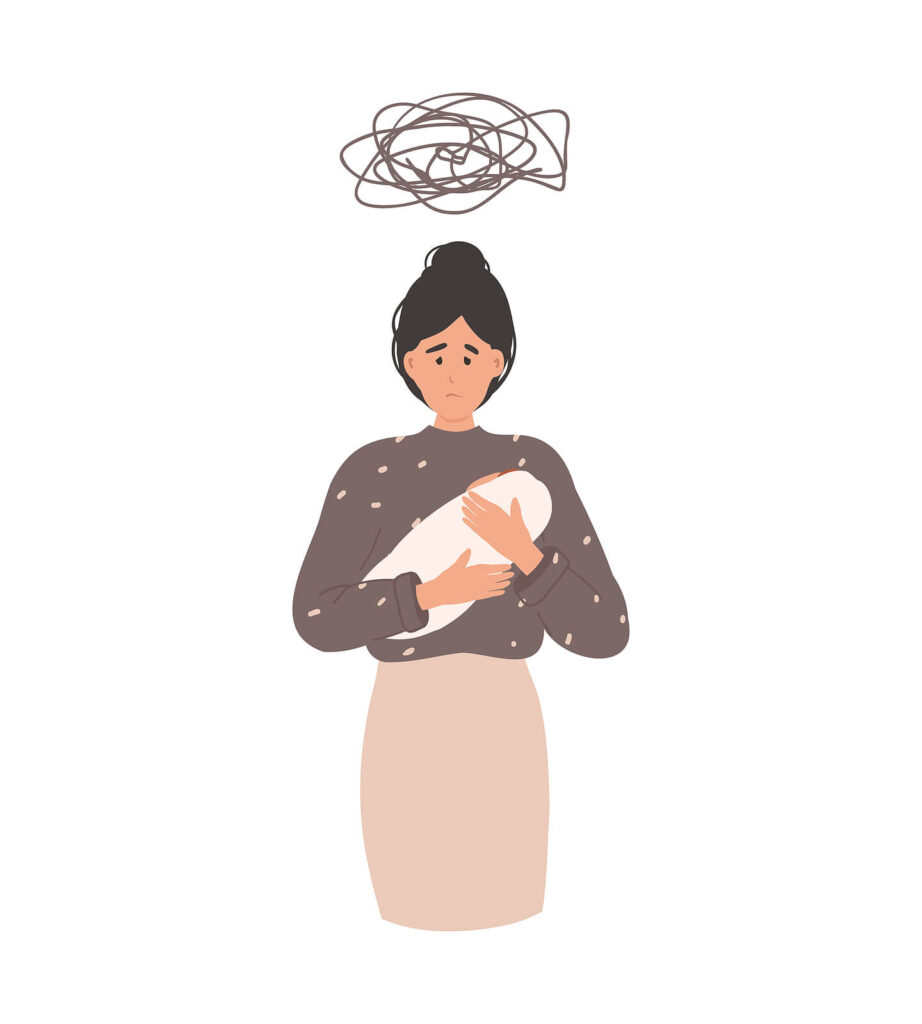Pregnancy and childbirth are amazing, miraculous experiences. And they take a heavy toll on a woman’s body. From physical changes and lack of sleep to hormonal changes, a woman’s body and mind go through a lot to bring new life to this world. You’ve probably heard of Postpartum Depression, and maybe even Postpartum Anxiety. But have you heard of Postpartum OCD?

Postpartum OCD is one of the most misunderstood and misdiagnosed perinatal disorders, according to Postpartum Support International (PSI). Even if you have never experienced OCD before pregnancy, you may still develop these difficult symptoms following childbirth. As many as 3%-5% of new mothers and some new fathers experience symptoms of Postpartum OCD.
Postpartum OCD therapy is undeniably beneficial for new mothers facing the challenges of obsessive-compulsive disorder after childbirth. By seeking pOCD therapy with The Family Therapy Clinic, mothers can work through the unique journey of postpartum OCD.
So what is pOCD?
Perinatal OCD is OCD that develops during pregnancy, and Postpartum OCD is OCD that develops immediately following childbirth. They are often referred to together as pOCD. Research has shown that women who are pregnant or recently gave birth are at an increased risk for developing OCD symptoms (International OCD Foundation).

Symptoms of Postpartum OCD:
The following are symptoms of pOCD, according to the International OCD Foundation:
- OCD symptoms that start or worsen around the time or pregnancy or delivery.
- Obsessions involving the fear of harm coming to the unborn or newborn infant.
- Not wanting to tell others about obsessions for fear of being diagnosed with psychosis or being hospitalized.
- Fear that you might harm the baby even when you don’t really want to.
- Compulsions meant to control or stop the obsessional thoughts, or to prevent fears from coming true (e.g., checking on the baby, excessive washing, repeating prayers, or requests for assurances).
- Avoiding certain activities with the baby (e.g., bathing, using stairs, holding, diaper changing).
- Feeling overwhelmed by the obsessions and compulsions.
- Feeling depressed (postpartum depression and pOCD often occur hand in hand).
- Needing to have a partner or helper nearby because of obsessional fear.
- Trouble sleeping because of obsessions and compulsive urges.
- Interference with taking care of the child.

How Can I Help Someone I Love Who is Struggling with Postpartum OCD?
While pOCD can be scary, there is hope. Treatment for pOCD is the same as treatment for typical OCD. Including Cognitive Behavioral Therapy (specifically Exposure and Response Prevention). When you see someone you love struggling with intrusive thoughts or compulsions, your first instinct might be to reassure them that everything will be okay to help ease their anxiety. This might seem to help short term, but in the long run is not very effective and may even make things worse. Be supportive! Maybe ask how you can help, and assist them in speaking with their doctor. Our American Fork, UT office has qualified ERP therapists that are here for you.
Break Free from pOCD with Postpartum OCD Therapy in American Fork, UT
Are you a new mom struggling with intrusive thoughts, anxiety, and overwhelming feelings? You’re not alone. Postpartum OCD can be challenging, but there’s help available. Join The Family Therapy Clinic on the healing journey with postpartum OCD therapy and support. We make it easy & convenient for busy moms like you:
- Contact our office so we can get to know your story better.
- Schedule your first ERP/OCD Therapy session with one of our compassionate therapists.
- Flourish through life without feeling the symptoms of pOCD.
Other Services our OCD Therapists Offer in American Fork, UT
At The Family Therapy Clinic, we offer a wide range of mental health services to support all your needs. While we provide OCD therapy, we understand that life can be unpredictable and challenging. Our expert therapists specialize in adult anxiety, teen anxiety & depression, couples and marriage therapy, and post-divorce therapy. Whatever your stressor may be, we are here to help you navigate through it.

+ show Comments
- Hide Comments
add a comment